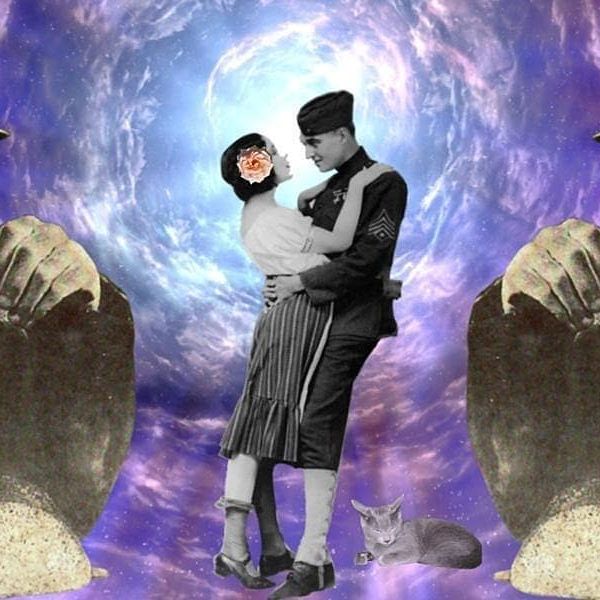Do you suspect your In-laws do not like or appreciate you? When our In-Laws do not like us it hurts. Here are some generalized insights to help you understand what they are actually doing to you and their offspring if and when they are targeting you or your family for social harm or exclusion.
Narcissistic In-laws are what they are — controlling, meddlesome, attention-demanding. provocateurs. They want all your emotional time and physical energy spent arguing about how to please deliberately unpleasable people.
The most important thing you can do if your In-laws do not like you is to understand how to stop emotionally reacting when and if they seek to bait or to provoke you into a controversy with them or with your mate.
The type of behavior they dish out will help you decide from there whether or not it’s worth asking your mate to handle them directly or if you think limiting time and emotional involvement with them is likely to be the best thing for your health, your nuclear family unit, and your general anxiety level.
For example…
Have they come right out and tried to get your spouse or love interest to leave you for a different mate? Have they already succeeded in causing fights between you and your lover? Do they refuse to respect you or your mate’s personal or professional life boundaries?
Expect behavior left improperly addressed to escalate. The aforementioned issues relate to Cluster B behavior, not normal people who might not be getting along or like one another because of a simple misunderstanding or because they come from different social or cultural backgrounds.
Once you know a parent is being abusive or neglectful of a son-in-law or daughter-in-law’s feelings, that’s when it’s time to act. Do not “give it time” or allow nonsense to continue.
Givers have to set limits. Takers seek to break everyone else’s boundaries and, if given the chance or opportunity, will indeed leave everyone but themselves and their chief Abuse Enablers nothing.
Here’s the rule of thumb many Narcissistic Abuse survivors pass along to folks noting hindsight is oftentimes the same gut feeling you had at the beginning of any toxic relationship…
If someone’s parent is rude to their mate, it’s up to the adult child to set and enforce healthy conversational boundaries and habits between themselves and their parents. If your parents are doing the harming or neglecting, advocate for yourself; it’s up to you to be clear that they need to stop.
If they treat your mate terribly, they do you harm directly, willfully, and with extreme disregard for the Adult Child – Parent to Grandparent relationship. If they triangulate you or their grandchildren from any person of affection, they need to go — they are behaving like Child Abusers (age of child or children being manipulated… irrelevant).
Don’t feel like you are the only person in the world to deal with Toxic Relatives. Or the only couple whose family members may or may not be so awful that you have considered or actually been forced (for medical and social health) to go no contact with them.
It’s up to every couple impacted by this very same issue to work together to forsake all others once they get married — including but not limited to unhealthy levels of social and emotional attachment to father and or to mother.
If their folks are Cluster B, expect them to incite drama that must — we repeat — that must be quelled and halted by the person who is actually the prize object the toxic In-laws most want to control, own, and to dominate. If they don’t like your mate — limit social and emotional contact and or separate.
Why? Because if someone’s parents don’t like you… it’s going to play a daily impact on everyone’s life and health in the relationship except for the people causing the problem.
While you agonize about why you are not good enough to please them — or about why your mate is not being accepted by your family, included, and treated kindly… they will be doing what all narcy people do. Gloating, gossiping behind your back, and using every interaction they have with you and your mate to figure out how to criticize more offensively or to destroy the relationship.
Why do toxic parents show kindness to their offspring and strive to triangulate them with their offspring’s love interest? Power.
Power they crave. Their opinion weaponized in the mind of their child powerful enough to cause other people duress?
Wow. That’s a huge Narcissistic Supply gain for them if they are actually interested in making themselves a pain.
Then, of course, there is likely with any Narcissistic Family unit the unpleasable people element of the In-laws never liking anyone their offspring dates until after the social and romantic demise of the relationship.
Bustle shares, “Your In-laws just might not like you. And, unfortunately, just because they’re adults doesn’t necessarily mean they’ll be grown-up about it. Instead, they’ll say and do things to hurt you and intentionally get under your skin.”
Bustle added a helpful suggestion set as clarification of how to cope with your In-laws crisis if they don’t like you. They share, “There’s no doubt that this situation can be tough to deal with. After all, who wants to spend time with someone who hurts their feelings?”
Then, the website goes on to add and to confirm, “You could attempt to explain to your in-laws that their words and actions hurt your feelings. But, it’s possible they’ll think of you as overly sensitive. Unfortunately, your best bet here is to limit your interactions with your in-laws.”
If you are in Narcissistic Abuse Recovery because your own family was toxic, expect the In-law nightmare and social sabotage drama to hurt even more than if you came from a family that provided you love and support.
Toxic mothers are excellent at figuring out how to push buttons and to say or not say just the right thing at the right time to cause maximum emotional and social damage in their own adult children’s lives.
Toxic fathers tend to stonewall and to withhold affection from their own child if they stay with a mate that the dad thinks is unsatisfactory. Expect them to pretend the targeted spouse they enjoy abusing does not exist or is completely irrelevant.
If either a Mommy Dearest figure or an Enabling Henchman father figure are cornered, expect them to blurt whatever hateful remark they think will get the most rise out of their target while leaving themselves looking innocent.
Blurting hateful remarks or gaslighting spin to cause their offspring to doubt or to feel embarrassed by their mate is the typical fare most toxic parents of adult child abuse victims strive to serve.
But they won’t just stop there, In-laws who don’t like you. If they think they can get away with saying or doing something hateful to insult or to exclude a spouse they don’t like, whether it’s their own child’s mate (or the offspring of only one in a stepchild situation) they will typically [often surprisingly] rally to harm their targeted Pinata together.
Family drama is what most toxic In-laws spend their life striving to create. When they are youngsters themselves, they tend to be the mean little child who bullies their siblings or on the schoolyard while simultaneously striving to suck up to anyone who they think is an authority figure.
In the In-laws mind, they want their offspring to believe they are in the seat of the Golden Child with their mate positioned as the family Preferred Scapegoat. Mother, Father, Step-Mother, Step-Father, parent who adopted, whatever… the Hamster Wheel of Narcissistic Abuse dynamic is the same.
Your mom and dad are divorced and one or both of them don’t like your mate?
Whether they are still a couple themselves won’t matter. If they still speak (or want to) they will tend to work in unison to target their own adult child’s romantic attachment for gross social dehumanization and harm.
They enjoy the opportunity to rekindle their own parenting trauma bond social domination cycle while bloodlusting to harm their offspring’s most important to them person.
Your parents have been married forever and they don’t approve of your new mate’s own divorce status or parental divorce, status, or background? Yada yada.
And then?
Reading up on how Narcissists use key phrases to manufacture emotional harm in the lives of others is one of the first things any responsible adult can do in order to ensure they are not missing the point of any abuse issue. How a covert or veiled snark lands in the ear of a target is never going to sound the same on the surface to an uninformed person or to anyone the Abuser is seeking to treat like a Golden Child while triangulating another.
Bye Felicia if they don’t knock it off.
Read refresher posts. Take Narcissistic Abuse recovery articles in like medicine for your noggin daily to assist yourself in learning how to set and to maintain healthful thinking and healthy boundaries.
Worried you are being too reactive or harsh? Worried you are the reason there are social discord problems? Self reflect.
Understanding that adults will not always see eye to eye or get along is crucial to unraveling the mess. Own your personal behavior choices and try to see things not only from your own but from everyone else involved’s perspective.
If you are being mistreated, go low to no contact and stop prioritizing including them or consideration for valuing their opinion in your life. If you have been doing the mistreating (and or hyper judging), knock it off.
Seriously. Stop yourself.
It’s not flattering. Or any kind of emotionally intelligent behavior to emulate if you witness someone else (or your own toxic parents or set in their Cluster B nurtured habits’ grandparents) doing it.
In-laws being kind to their adult offspring’s mate truly makes or breaks a family unit. Without them doing the adulting, toxic parents can do considerable harm to not only their preferred scapegoats but to their personal relationships with adult children and or with any grandchildren who happen to have 50% of the targeted mate’s DNA.
How do you know if and when cutting a toxic In-law out of your life is or is not socially or morally (medically speaking) appropriate? Gage the stress they are causing to you and your mate compared with whether or not they are adults likely to be on the Cluster B spectrum.
A parent who abused or neglected their child when they were young is going to do even more harm if they can to the same child when he or she becomes an adult. It’s a game for that type — engaging in creating things like abandonment issues in their offspring then showing up at random sporadic times to engage in behavior like triangulating or Love Bombing.
A toxic parent will try to get you to break up with your mate because they are not interested in spending time with that person. They will give no consideration to whether or not their own adult child loves, likes, or feels happy with their mate.
Only thinking of themselves, the Helicopter Parent will strive to meddle, to manufacture romantic chaos between parties, and to ultimately do nothing more than attention suck while seeking to adult child dominate.
Take a deep breath and realize — Yes — they are acting like a menace. And you are the adult now and they are abdicating on doing the adulting by acting like Narcissistic control freaks who use their words and their social prowess to attention seek while doing others harm.
Boundaries are key. Knowing how to set and enforce them.
Not boundaries they set — boundaries you create to divide yourself from your parents like healthy adults do when they mature and stop thinking like Co-Dependents.
Be mindful not to throw a non-Cluster B In-law in the discard pile, however. That meddling stuff comes in handy in life to have a person who is a bit older and wiser to have an adult child’s back once in a while.
Think of this. Mother says, “Be careful. That girl lies to her friends, to you, to me, and to her parents. She’s likely to lie under oath, too, if you and she ever have any kind of legal dispute.”
Sabotaging? Meddling? Poisoning the well? Deliberately striving to make someone else feel or to somehow appear as if they are less?
It depends on who you ask, who you are in the dynamic, and how you interpret the social intelligence information.
A parent who has a valid concern about someone’s love interest — say, for instance, they are an alcoholic or some kind of socially violent abuser — is right to show care, concern about, and compassion for their child and to worry about the safety and well being of grandchildren.
Are they meddling to point out red flags of Love Fraud social predation?
If the person is sharing accurate information…
[I.E. The In-law caught their child’s love interest lying… ]
That’s not the same thing as a Mother In-law trying to get their adult son to head out to party behind his wife’s back with his ex-girlfriend in the hopes that the betrayal of her offspring’s mate will cause such a fight the relationship will break.
As such, realize if the In-laws are likely to be Cluster B the less you and your children have to do with them and with your mate the better off everyone in the peer group will be. Stick to Christmas cards and Skype on holidays — and do yourself the incredible favor of staying as uninvolved with your mate’s parents as is humanly possible.
Letting your mate handle speaking with and communicating with his or her folks is essential for 21st-century marriage survival. The habit is a crucially socially and emotionally intelligent one to develop.
Most divorced people report their In-laws meddling in their personal or private relationships, targeting them for social abuse like ridicule or exclusion, and or a toxic Mother-In-Law was a major reason for the end of their romance. It’s a common problem that does not have to exist.
Get toxic In-laws out of your brain and your romance if you want to stay any form of happily married. And, if you are lucky enough to them, tell kind parents you love them and how much you appreciate they respect you, your life, your time, and your boundaries.





